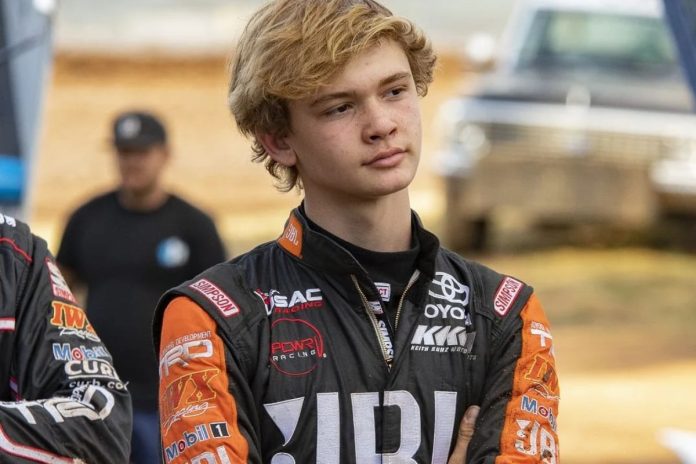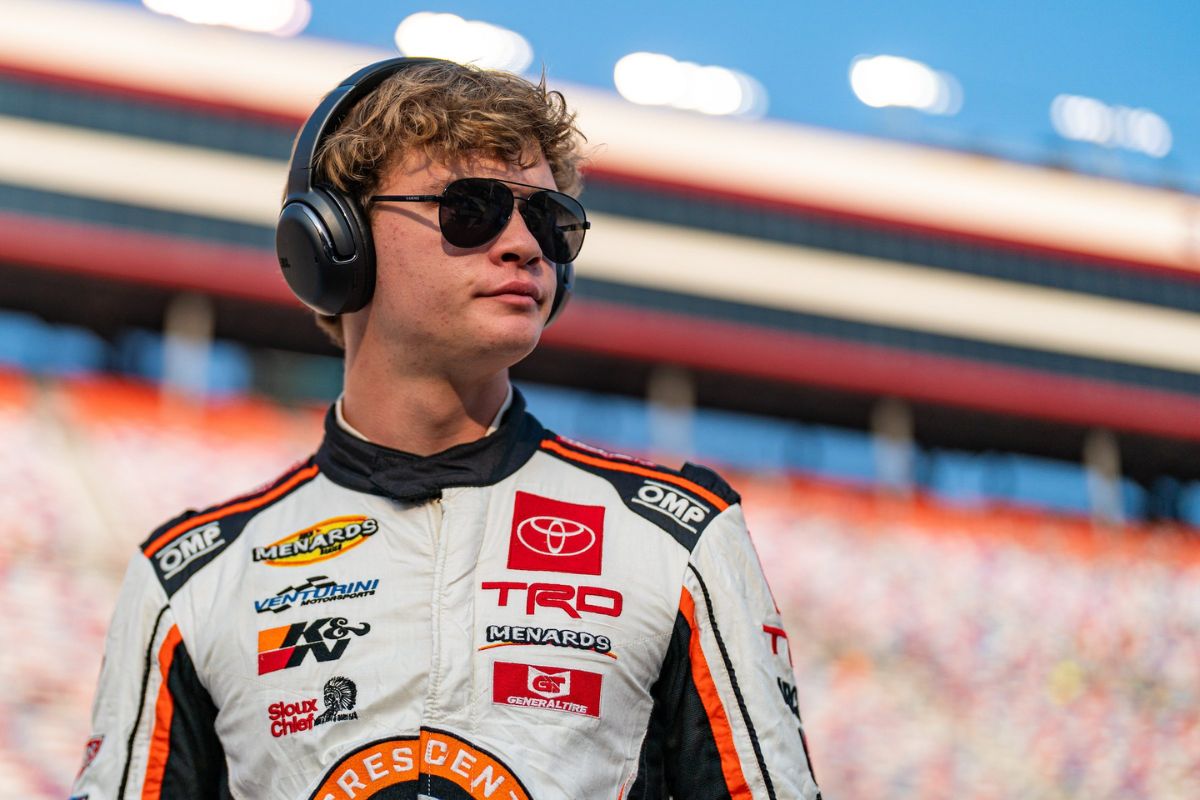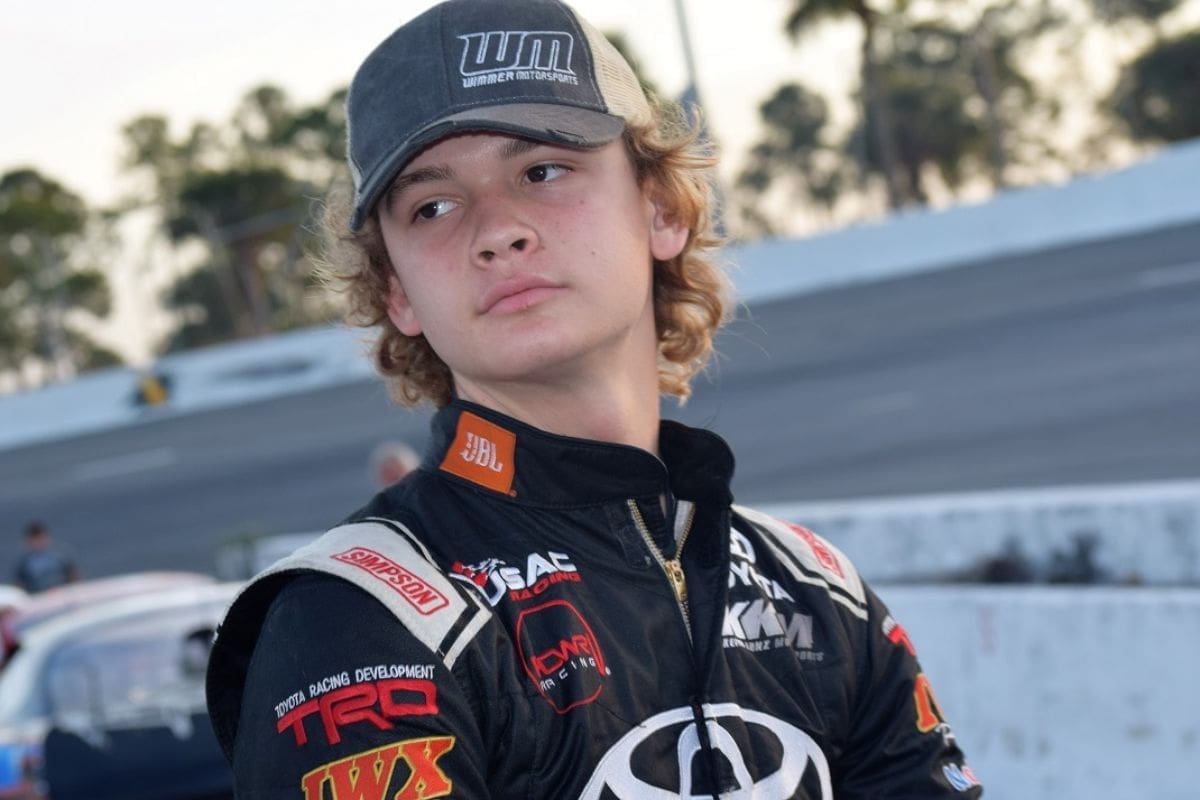Jesse Love’s Take on NASCAR’s Decline: Jesse Love’s frank critique of NASCAR’s recent incidents, particularly during the Talladega races, has sparked a broader discussion on the sport’s trajectory. His concerns, focusing on the evolving car technologies and race management strategies, suggest an important shift might be necessary to recapture the essence and excitement of traditional NASCAR racing. Such outspoken commentary from a professional driver not only highlights the internal conflicts within the racing community but also raises significant questions about the balance between innovation and tradition in motorsports.
Key Takeaways
- Jesse Love criticized the lack of thrill in modern NASCAR races, highlighting Talladega’s chaotic events.
- Love pointed out issues with the Next-Gen car affecting race dynamics and entertainment.
- He expressed concerns about complex fuel strategies and the unpredictability it brings to races.
- Love underscored the need for a balance between innovation and maintaining NASCAR’s traditional racing essence.
- NASCAR is actively reviewing and modifying car safety features in response to driver feedback and incidents like those at Talladega.
Race Recap
At the recent Xfinity Series race of Ag-Pro 300 at Talladega, Richard Childress Racing celebrated a notable victory with Jesse Love securing the checkered flag, amidst a race marked by strategic pitfalls and crashes that impacted their Cup Series contenders. This win marked a significant achievement for Love and highlighted the complexities of NASCAR racing, where strategy intertwines with raw speed and sheer unpredictability.
The race itself was a strategic web, especially for the Cup Series drivers from Richard Childress Racing, Kyle Busch and Austin Dillon. They started from strong positions, which typically bodes well in the environment of Talladega. However, their race strategy focused heavily on fuel conservation—a tactic that involved maintaining only half-throttle for significant portions of the race. This approach is risky; while it can save vital fuel, it also positions drivers in a spot within the pack, often unable to avoid the chaos that unfolds in restrictor-plate racing.
Indeed, the strategy backfired when both drivers got caught in ‘The Big One‘—a notorious multi-car wreck synonymous with Talladega’s high-speed drama. This incident dramatically reshaped the race’s dynamic, pushing both Busch and Dillon to the back of the standings, only ahead of those who did not finish and rookies.
Jesse Love’s Frustrations
Jesse Love recently voiced his concerns regarding the diminishing thrill in NASCAR, particularly at iconic tracks like Talladega and Daytona, which traditionally promise high-stakes excitement. Love’s perspective rooted deeply in a racer’s intrinsic passion for the sport, sheds light on an unsettling trend affecting both drivers and fans alike. His critique points towards a broader narrative of NASCAR’s evolution, where the very essence of what made superspeedway races a spectacle seems to be fading.
“And all it is, is a tug of war between the Top Lane, and bottom Lane sometimes. Leader can kind of go top bottom. But it’s just, I don’t know, I’m not educated enough to even comment on what they need to do to fix it. but it is frustrating to watch.”-Love
Historically, tracks like Talladega and Daytona have been celebrated for their high-speed, adrenaline-fueled races that often lead to edge-of-the-seat finishes. However, Love highlights a shift in this dynamic, suggesting that recent changes in race management and car technology might be undermining the raw excitement these venues once guaranteed.
Jesse Love’s Interview
In a revealing interview on the Door Bumper Clear podcast, RCR rookie Jesse Love critically evaluated the current state of superspeedway racing, expressing concerns over its ‘Unusual Form’ and the impact of recent changes. Love, fresh off a victory at Talladega, articulated the growing unpredictability and the intricate challenges drivers face under the current framework. His insights provide a rare perspective into the internal perceptions of seasoned racers navigating through these evolving landscapes.
“You went out, won the Xfinity Series race. You gained a ton of experience. If you put yourself in your shoes yesterday, and you were a rookie in that race there’s not a ton of opportunity for you to learn how to throw blocks, what the air is going to do, because you’re not racing 100% of the race…”-Griffin
Love highlighted the issue of races at tracks exceeding 2.5 miles becoming ensnared in complex fuel mileage calculations, a scenario that has become increasingly common and contentious. This element of unpredictability, while adding a layer of strategic complexity, also introduces a variable that seems to skew the traditional racing skills in favor of opportunistic gambits. According to Love, this shift not only alters the competitive balance but also impacts the spectator experience, veering away from the raw, unadulterated racing drama that fans have historically cherished.
“I mean, I don’t think Shane (van Gisbergen) learned a lot about how to go win a cup race yesterday. He learned obviously, something about how to save fuel. But that’s just such a weird form of racing right now, and it sucks to watch because, they’re entertaining when you’re three wide, four wide is cool, but you know they’re not going to wreck. You know, which is a good thing that they’re not going to tear up stuff, but you know that they’re not driving 100%. And, as a fan. Because I was a fan yesterday watching the race was a frustrating part.”
“We qualified in the Xfinity Car. Single car draft, or single car run. Like 181, and they’re running 175, 179…”-Love
Discussion on Next-Gen Car
The introduction of NASCAR’s Next-Gen car has sparked widespread debate regarding its impact on the sport’s entertainment value and competitive dynamics. As the racing community navigates through this transformational phase, it is crucial to dissect both the criticisms and affirmations that have surfaced. The promise of the Next-Gen car was to offer a more level playing field and elevate the racing spectacle, yet some stakeholders express concerns over the actual excitement delivered during races.
- Technological Advancements: The Next-Gen car integrates numerous technological improvements intended to boost performance and safety. However, the complexity of these systems may also lead to unforeseen issues in race conditions.
- Competitive Balance: One of the goals was to tighten the competition. While this has been partially achieved, the uniformity of car performance across teams has led to debates about the dilution of driver skill and team strategy’s impact.
- Spectator Engagement: The visual and auditory changes in the Next-Gen cars were expected to attract a modern audience. Still, traditional fans might feel alienated, impacting viewer engagement.
NASCAR’s Response?
Given these concerns surrounding the Next-Gen car, it is imperative to examine how NASCAR has addressed the growing dissatisfaction among stakeholders. The response from NASCAR, up to this point, reveals a multifaceted approach, albeit one that has sparked debate regarding its adequacy and timeliness.
Integrating driver feedback has been another cornerstone of NASCAR’s strategy. By engaging directly with drivers, NASCAR aims to align more closely with those most affected by the car’s dynamics. However, the effectiveness of this feedback loop is contingent on how swiftly and substantially NASCAR can implement suggested changes.
Moreover, NASCAR has ramped up its fan engagement efforts. Through more robust use of social media and interactive forums, NASCAR seeks to reassure fans and stakeholders of its dedication to improving the race day experience. Yet, the community’s ongoing concerns suggest that while communication has improved, the substantive issues remain largely unaddressed.
News in Brief: Jesse Love’s Take on NASCAR’s Decline
Jesse Love’s critique articulates significant concerns regarding NASCAR’s trajectory, particularly the impact of technological advancements and race management on the sport’s traditional appeal. His insights from the Talladega event highlight the tension between innovation and preservation within NASCAR.
It becomes crucial for stakeholders to balance these elements to maintain the sport’s integrity and excitement. Continued dialogue and thoughtful adjustments are vital to address the apprehensions of drivers and fans alike, ensuring NASCAR’s enduring popularity and relevance.
Our Reader’s Queries
Q. How old is Jesse Love in NASCAR?
A. In a thrilling, crash-filled race at Talladega Superspeedway, nineteen-year-old rookie Jesse Love clinched his inaugural NASCAR Xfinity Series victory. Fending off a determined Brennan Poole, Love emerged triumphant in a nail-biting double-overtime finish. With Poole charging alongside in the trioval, Love crossed the finish line just 0.141 seconds ahead of Riley Herbst, securing his place in the annals of NASCAR history.
Q. Where is Jesse Love going?
A. In the upcoming 2024 Xfinity Series season, Jesse Love will take the wheel of the No. 2 Chevrolet under the banner of Richard Childress Racing.
Q. Who is number 2 love in Nascar?
A. Originating from California, Jesse Love embarked on his racing journey at the age of five, cutting his teeth in quarter midgets. Transitioning to the NASCAR Xfinity Series, Love joins forces with Richard Childress Racing to pilot the No. 2 Chevrolet on a full-time basis in 2024. Remarkably, Love clinched his maiden Xfinity victory at Talladega Superspeedway, a mere nine starts into his burgeoning career.
ALSO READ: Jesse Love Breaks Superspeedway Curse: NASCAR Community Cheers




